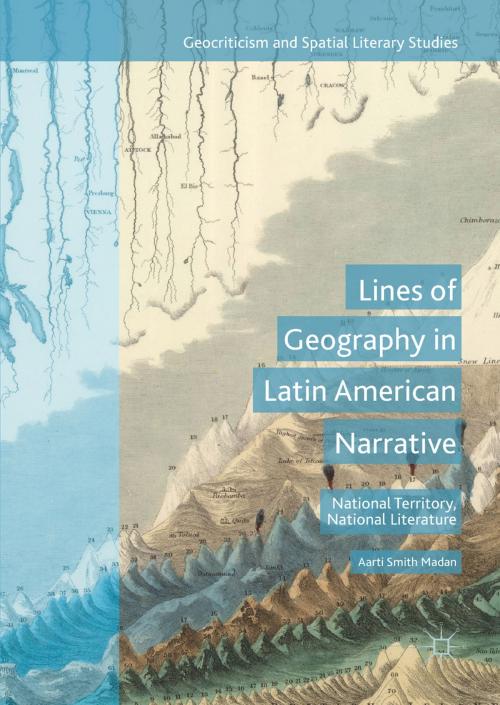Lines of Geography in Latin American Narrative
National Territory, National Literature
Fiction & Literature, Literary Theory & Criticism| Author: | Aarti Smith Madan | ISBN: | 9783319551401 |
| Publisher: | Springer International Publishing | Publication: | August 17, 2017 |
| Imprint: | Palgrave Macmillan | Language: | English |
| Author: | Aarti Smith Madan |
| ISBN: | 9783319551401 |
| Publisher: | Springer International Publishing |
| Publication: | August 17, 2017 |
| Imprint: | Palgrave Macmillan |
| Language: | English |
This book looks to the writings of prolific statesmen like D.F. Sarmiento, Estanislao Zeballos, and Euclides da Cunha to unearth the literary and political roots of the discipline of geography in nineteenth-century Latin America. Tracing the simultaneous rise of text-writing, map-making, and institution-building, it offers new insight into how nations consolidated their territories. Beginning with the titanic figures of Strabo and Humboldt, it rereads foundational works like Facundo and Os sertões as examples of a recognizably geographical discourse. The book digs into lesser-studied bulletins, correspondence, and essays to tell the story of how three statesmen became literary stars while spearheading Latin America’s first geographic institutes, which sought to delineate the newly independent states. Through a fresh pairing of literary analysis and institutional history, it reveals that words and maps—literature and geography—marched in lockstep to shape national territories, identities, and narratives.
This book looks to the writings of prolific statesmen like D.F. Sarmiento, Estanislao Zeballos, and Euclides da Cunha to unearth the literary and political roots of the discipline of geography in nineteenth-century Latin America. Tracing the simultaneous rise of text-writing, map-making, and institution-building, it offers new insight into how nations consolidated their territories. Beginning with the titanic figures of Strabo and Humboldt, it rereads foundational works like Facundo and Os sertões as examples of a recognizably geographical discourse. The book digs into lesser-studied bulletins, correspondence, and essays to tell the story of how three statesmen became literary stars while spearheading Latin America’s first geographic institutes, which sought to delineate the newly independent states. Through a fresh pairing of literary analysis and institutional history, it reveals that words and maps—literature and geography—marched in lockstep to shape national territories, identities, and narratives.















